A Kinder, Gentler Middle Finger
A crash course in the AIDS crisis and the importance of community.
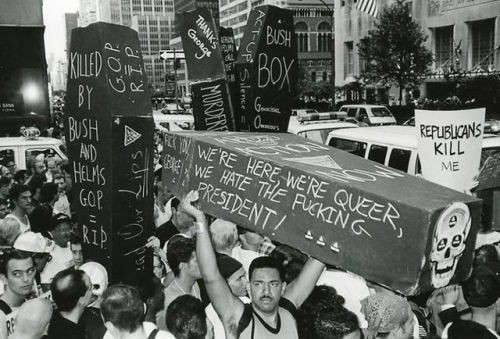
After a near-decade of indifference, the World Health Organization declared December 1 World AIDs day, as an effort to increase awareness, show support for those who are positive, and of course mourn and remember those we have lost. Each year, a specific theme is carefully chosen to best reflect the values held by various grassroots, national and international agencies involved in the prevention and treatment of HIV/AIDS.
The theme of this year’s World AIDS Day is “Communities make the difference.” It is through a lack of community that caused the untimely death of many. It is through the strength of community that awareness was raised, ignorance was fought, and progress was won. It is through the forging between communities that we prevent history from being repeated.
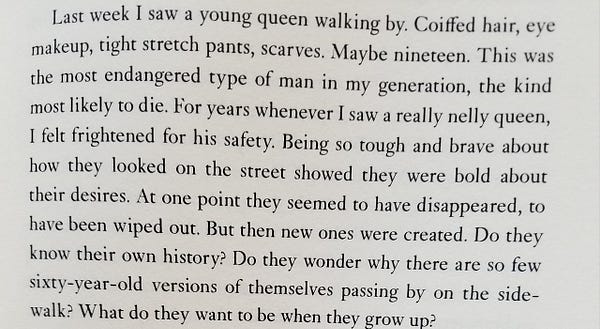
For those of us who did not live through the AIDS Crisis, it is difficult to truly grasp the terror and confusion of the tragedy — the lack of information, suffering, and inevitable death many faced. As the years go on, the anger and outrage diminish. Marriage equality passed in 2015, young people are more openly queer, and Pride events went from political protests to a corporate who’s who of sponsorships and pink capitalism. At the height of a “woke” renaissance, it’s easy to remember that things have not always been this way. Although the queer experience is never an easy one, queer people are a mark more accepted in social circles than in previous history. Communities are looser because there aren’t such vicious streaks of strife tying people together.
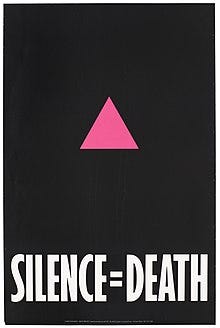
Although we also have a president whose tenure and actions (or lack thereof) are putting us in danger, our ability to drive communities to political action and activism pales in comparison to those of the 70s and 80s — where grassroots community organizations like AIDS Coalition to Unleash Power ACT UP was forged out of necessity. Since 1987, ACT UP has worked to end the pandemic and improve the lives of those with AIDS through direct action, treatment and advocacy, and medical research. Upon its inception, the iconic Silence=Death poster was decided upon using abstract imagery in place of photography to include as much of the community as possible. The pink triangle had only been reclaimed a mere decade ago, from its association with the persecution of queer people in Nazi Germany. Its minimalistic approach underlines the severity in its statement. It served as a rallying cry for the queer community and a warning shot for homophobes and bigots alike.
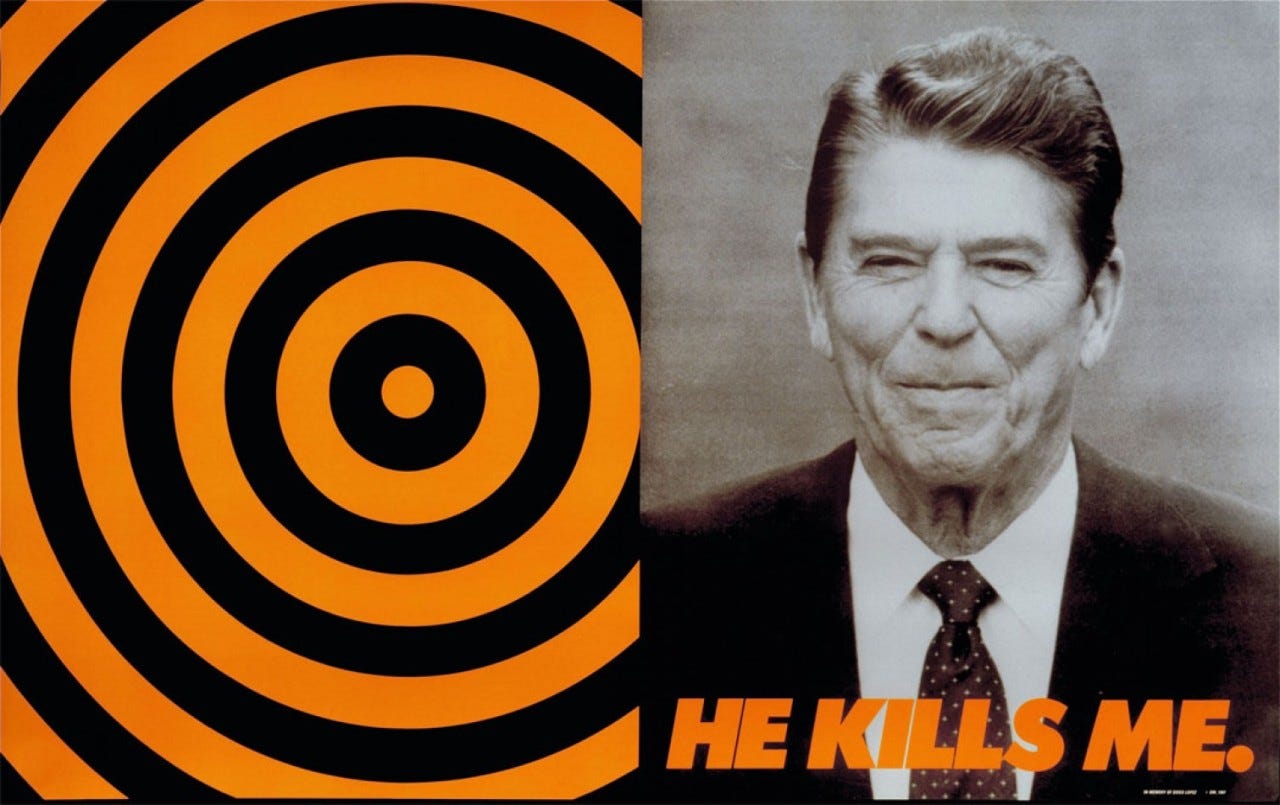
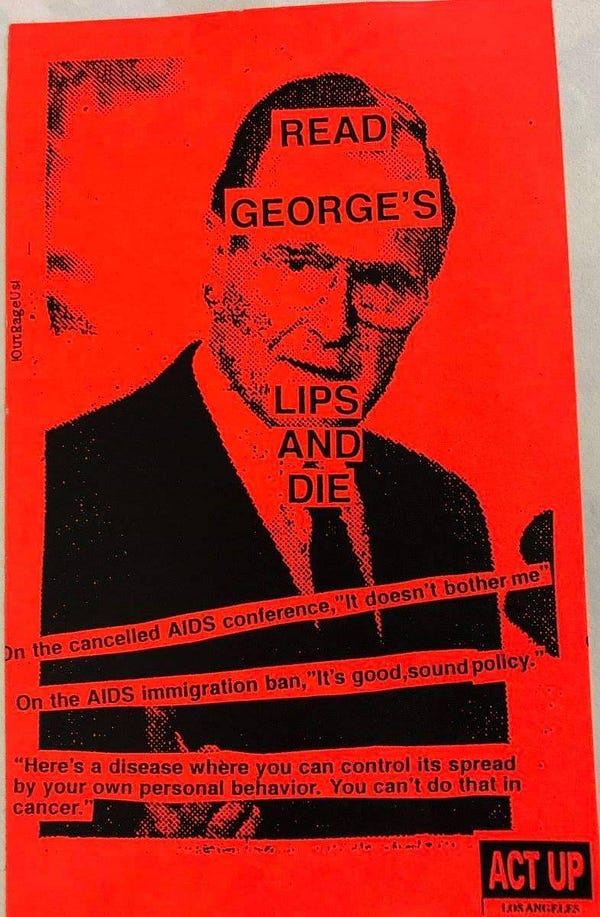
The silence, in particular, was that of then-president Ronald Reagan, who never once said the word AIDS during his time in office from 1981 to 1988. He and his administration skirted around the issue, even deigned to laugh when it was brought up during press conferences. It was the silence of George H. W. Bush, Reagan’s vice president and eventual successor, who famously called for a “kinder, gentler” America, whose lack of urgency lent a hand to the AIDS epidemic growing dramatically in the United States. It was the silence of the FDA and the American public in the face of this tragedy. It was the silence that equaled death.
People who were positive, who “had it,” were ostracized and treated like lepers, at times refused treatment, at times cast out from their homes. And always on the outside looking in at a world that passed by without them. Misinformation spread like a pox to fill in the wide gaps left by a silent administration and a slow-moving FDA. Rumors spread about how exactly to catch it from someone. There are people like Ruth Coker-Burks and the late Dr. Jerry Rabinowitz who are known for no act greater or braver than the ability to be kind to patients in a world that was telling them not to, to give them a sense of community in a world that would refuse them of such. ACT UP had several campaigns based around breaking down the homophobia that lead to the ostracization of patients and the queer community in general. They used photography of couples in sweet embrace, highlighting that queer people were not some Lovecraftian horror, but simply human. They were fighting for the right to exist as people, and for a place beyond the queer community — a place in their local community.

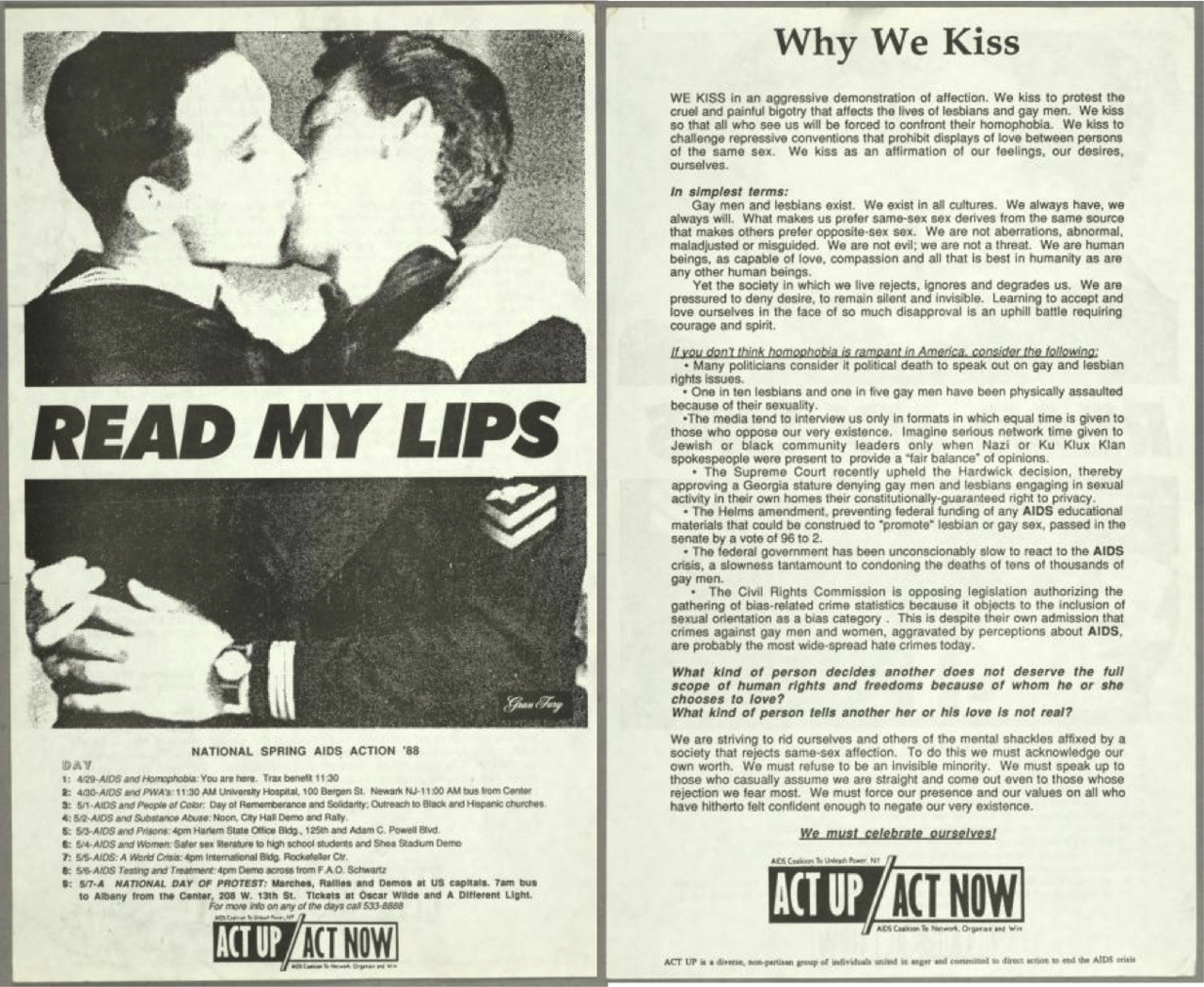
The need for the support of the community, be it queer or local, small or large, is still high. The consequences of the AIDS crisis are ongoing, and prejudice lives on. We must remember those who came before and those who failed us and those who are still here with us. We must not only commit to the fight against AIDS but also support and enrich the lives of people who have it. We now have PrEP — the pill that helps to prevent HIV infection. But advancements in treatment only help those who have access to them, and the right to be informed is being threatened yet again. Obstacles in administration are still at large. Bush might be dead and buried, but his actions are echoed in the Trump administration with the reduced research funding and prevention of sexual health education and resources. 38 years later and we still have work to do. We have to continue to shift culture, fight for access to health care and fight to live. We have to make a difference, as a community. We have to do our part to end the stigma, to make sure people are informed and have equal and easy access to treatment. We have to be angry. We have to be kind. We have to act up.






